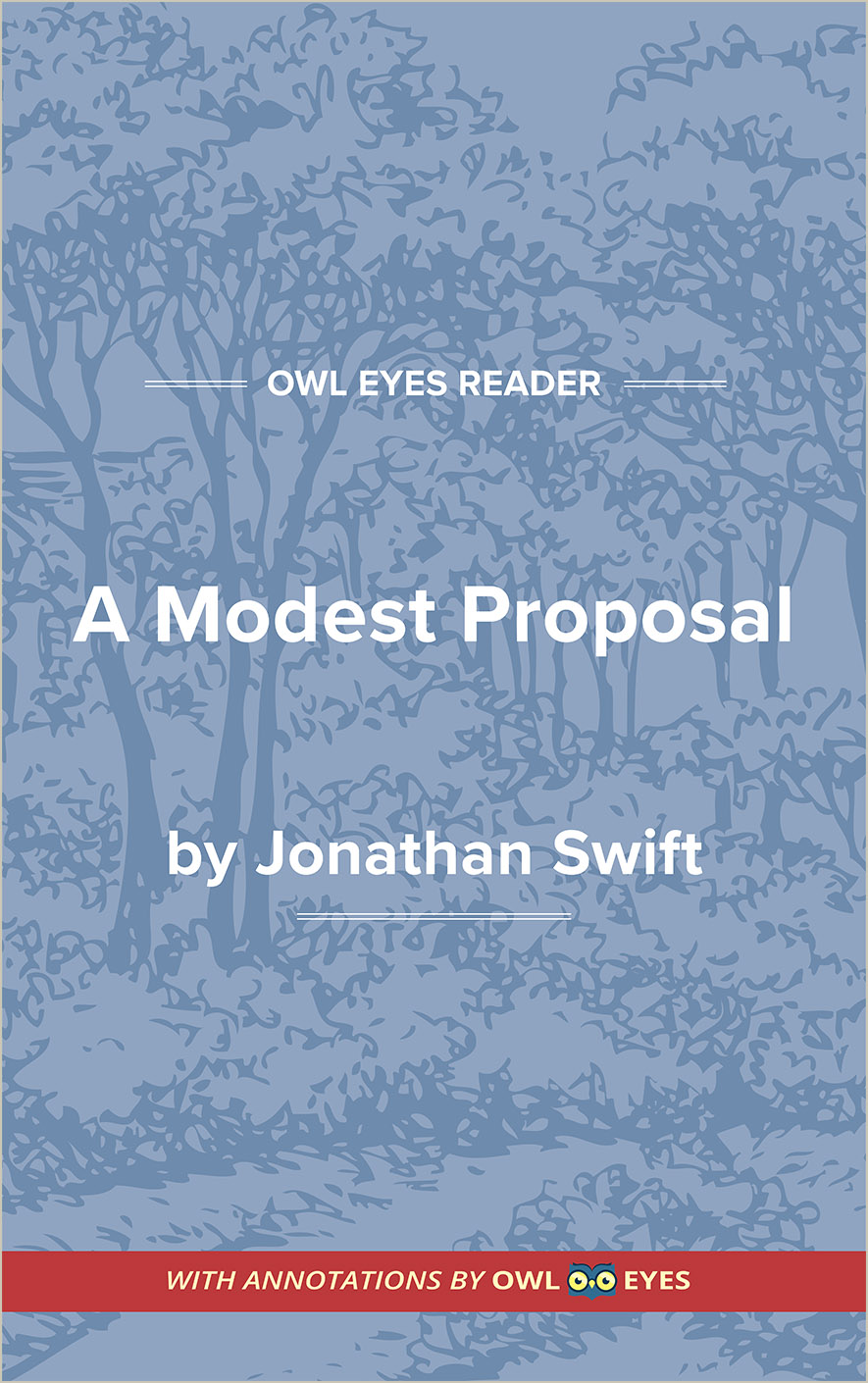Study Guide
Analysis Pages
Summary
Swift’s A Modest Proposal has been called the greatest work of irony ever written. A dispassionate social scientist surveys the poverty in Ireland and structures his proposal in five parts after the classical rhetorical pattern: exordium (introduction), narratio (narrative), confirmatio (confirmation), confutatio (refutation), and peroratio (peroration).
The exordium evokes the familiar sight of female beggars followed by many children dressed in rags. The image suggests the problem of poverty, overpopulation, and hunger that the narrator proposes to solve with his “fair, cheap, and easy method” of fattening the poor babies for a year and then selling them as delicious delicacies for the tables of the rich.
In the narratio, the narrator coldly calculates the number of babies needed. Out of one and a half million people in Ireland, he reckons only two hundred thousand couples are breeders. Subtracting thirty thousand whose parents can afford them, and fifty thousand who die in the first year of life, and sparing twenty thousand for breeding purposes, he figures only one hundred thousand babies will be sold for slaughter each year. Instead of being a burden on families or welfare agencies, these children will contribute to the feeding and clothing of thousands of others, since their skins can also be tanned for leather.
The confirmatio explains the public benefits of the scheme. This meat is not seasonal and thus supplies the cyclical scarcity of fresh meat. A poor mother can clear a profit of eight shillings per child. In a land torn by religious strife, the number of Catholics would be greatly lessened. The new industry would push the gross national product higher. Parents would save not merely eight shillings but the far greater cost of rearing the child for years. If poor people saw a profit from pregnancy, they would be more inclined to marry and then to be more tender and caring with the family.
(The entire page is 476 words.)
Owl Eyes subscribers get unlimited access to our expert annotations, analyses, and study guides on your favorite texts. Master the classics for less than $5/month!

